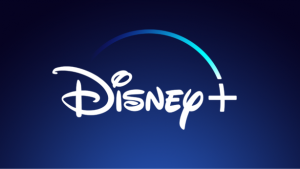
After more than 40 years of operation, DTVE is closing its doors and our website will no longer be updated daily. Thank you for all of your support.
Disney’s streaming Fantasia
 In the most famous section of one of Disney’s emblematic movies, Mickey Mouse plays the sorcerer’s apprentice who, tired of the daily slog of fetching water in a couple of pails, uses magic in which he is untrained to animate a broom to do the work for him, with disastrous results.
In the most famous section of one of Disney’s emblematic movies, Mickey Mouse plays the sorcerer’s apprentice who, tired of the daily slog of fetching water in a couple of pails, uses magic in which he is untrained to animate a broom to do the work for him, with disastrous results.
Mickey’s employers this week embarked on a similar risky enterprise. Tired of working on behalf of streaming sorcerer-in-chief Netflix, the Mouse House has called on the spirits that have been mastered so effectively by Reed Hastings’ organisation to carry buckets filled with money to its own bottom line.
Disney yesterday gave investors a first glimpse into Disney+, its new SVOD service, which is to launch on November 12 with a “rapid” global expansion planned within the next two years. Disney has priced its offering at US$6.99 per month – almost half the monthly fee of a standard Netflix subscription in what is seen as a bid to amass a subscriber base quickly.
Following its US debut, Disney+ will expand globally, with plans to be in Europe, Latin America and Asia in the next two years.
CFO Christine McCarthy said that Disney+’ is expected to generate peak operating losses between 2020 and 2022 before becoming profitable in five years.
Disney is also mulling international launches of Hulu, the more adult-oriented US streaming service in which it now has a majority stake. Disney+, Hulu and sports streaming service ESPN+ together comprise a three-pronged streaming strategy that Disney hopes will position it among a few select global leaders in the transformed media landscape of the future.
Reception of Disney’s streaming plans has on the whole been positive. The company’s share price jumped today, while Netflix took a significant dip on the market. Investors so far seem to approve of Disney’s all-in, long-term no holds barred approach to streaming.
The competitively priced offering, with a raft of super-premium content, is seen as likely to attract significant numbers of consumers. Disney’s multi-angled strategy also gives it some room for manoeuvre if things go a bit awry. While the company believes that Disney+ and Hulu will be attractive to different audiences, there is likely to be a significant element of overlap – all the more so if sports service ESPN+ is factored in. Disney direct-to-consumer chief Kevin Mayer has already indicated that the group is likely to offer a discounted bundle of all three services, something that will differentiate it from sports-free Netflix.
Disney’s acquisition of Fox’s entertainment assets meanwhile brings it not only that majority stake in Hulu but a raft of intellectual property that will significantly boost the content line-up of Disney+. The new service will, for a start, become the exclusive streaming home of The Simpsons.
That underlines one of Disney’s big advantages in its coming battle with Netflix – the breadth and depth of its content library. While Netflix has to produce an ever-growing roster of originals to keep subscribers interested, Disney can rely in part on its unparalleled archive of instantly recognisable franchises to offset its rival’s enormous spend.
Will it work? Number crunchers’ opinions vary. Digital TV Research has predicted that the Disney+ service will reach as many as 75 million subscribers by 2024, in line with Disney’s own forecast that it will reach between 60 and 90 million customers by 2024, with the US contributing a third. Digital TV Research believes that this is achievable but says that the US will remain the largest market by some distance, adding an average of five million subs a year to take its total to 25 million by 2024.
Another UK research outfit, Rethink TV, takes a more sceptical view. Rethink believes that Disney will struggle to make inroads into SVOD globally and that Netflix will remain the dominant force, earning more streaming revenue than Disney, AT&T and Comcast put together. Digital TV Europe’s own sister research house Ovum also cleaves to the view that Netflix will remain the dominant player, with rivals such as Disney+ suffering from slower subscriber growth.
Disney’s commitment shouldn’t be underestimated, however. Unlike media rivals who seem to be hedging their bets by reserving some rights for their own direct-to-consumer plays on one hand, while seeking to maximise ongoing licensing revenues on the other, Disney believes it can reserve a place at the streaming top table by going for it. And unlike Apple or Amazon, it is focused on the content business rather than using content to sell something else, be it iPhones or next-day delivery.
Fantasia, the movie of which The Sorcerer’s Apprentice was a part, broke all the rules and emerged as an unlikely classic. Commercially, however, it struggled to recoup the huge investment required to make it and only turned a profit 30 years after it was first released. Time will tell whether Disney has conjured up a magical way of conveying cash to its coffers or an out-of-control broom that tips its profits down the drain.


